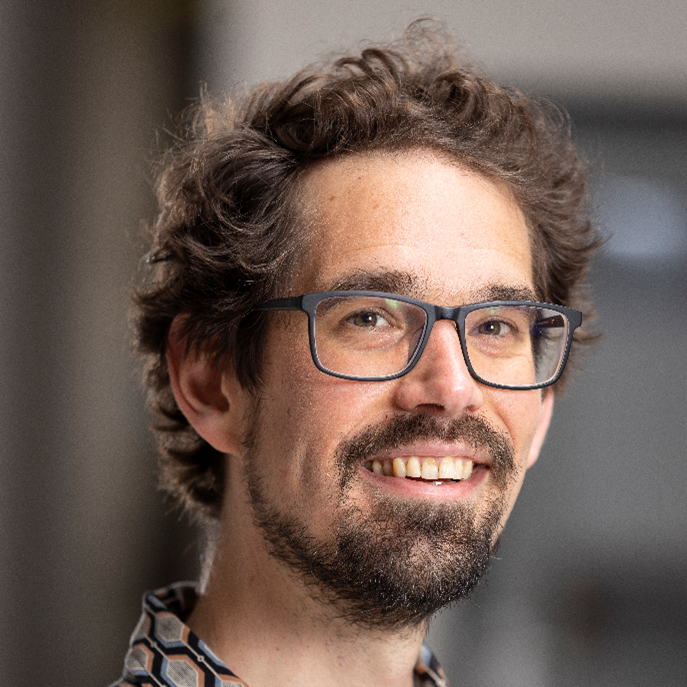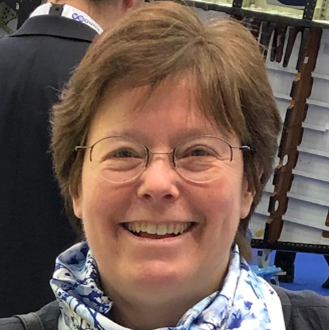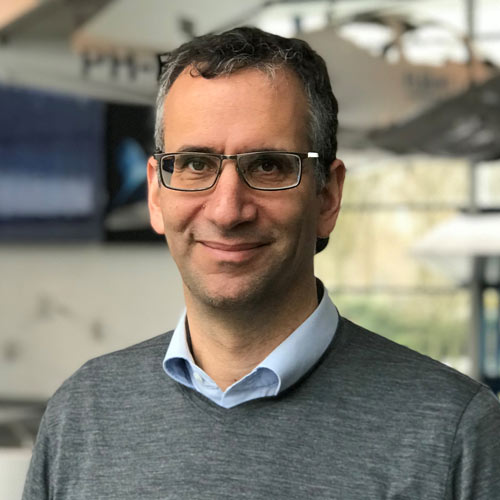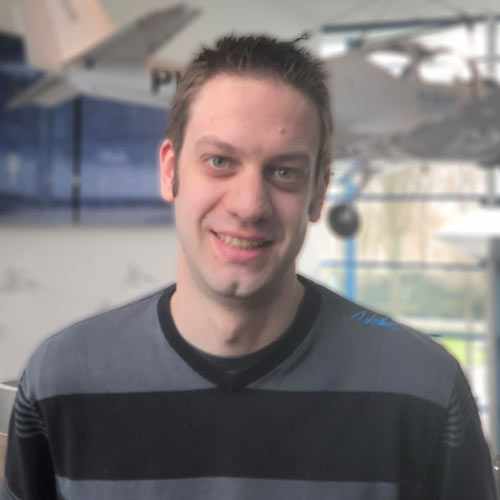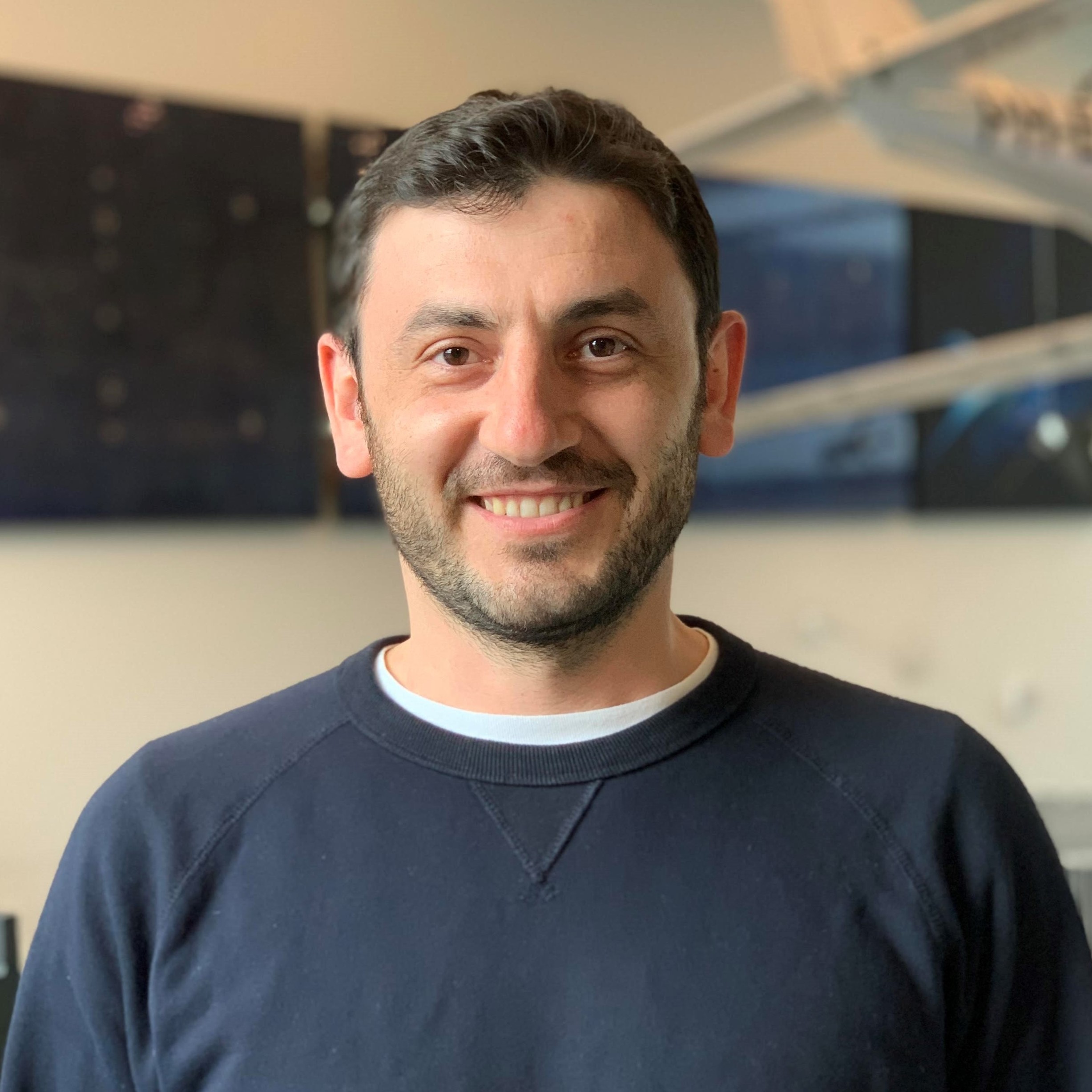Programme
The 5-day programme is composed of a mix of lectures and experimental work:
| Monday 24th June | Tuesday 25th June | Wednesday 26th June | Thursday 27th June | Friday 28th June |
|---|---|---|---|---|
09:00: Intro and getting to know each other – all 10:00: A route to modern polymer matrices – Baris Kumru (TU Delft) 11:00: Introducing sustainability to polymer matrices – Sylvain Caillol (CNRS Montpellier) | 09:00: Intro into day 2 – Clemens Dransfeld (TU Delft) 09:30: Microstructural features and fibre level organisations in unidirectional tapes – Clemens Dransfeld (TU Delft). 10:30: Predicting compression failure of unidirectional composites at the microstructural level – Soraia Pimenta (Imperial College) | 9:00: intro AFP – Daniël Peeters (TU Delft) 9:45: consolidation and thermo-mechanical history – Wouter Grouve (U Twente) 11:15: case studies + highlights MSc/PhD theses – Daniël Peeters (TU Delft) | 9:00-10:45: Frontal polymerization (FP): FP variants and state-of-the-art material systems - Marco Sangermano (Politecnico di Torino) 11:15-13:00: Composites manufacturing with FP: processing and modelling - Veronique Michaud (EPFL)
| 9:00-10:45: Smart manufacturing of composites enabled by AI - Carlos González (IMDEA) 11:15-12:00: Learned simulators for multiscale composites processing – Baris Caglar (TU Delft) 12:15-13:00: Data-driven additive manufacturing – Kunal Masania (TU Delft) |
| Lunch break | ||||
13:00-13:30: Lab Tour and introduction of DASML labs 13:30-16:30: Activity 1-2-3 in groups (groups will change each hour) Activity 1: Renewable thermoset matrices (hot stage, Koffler, molds and how to play with samples) Activity 2: Renewable thermoplastic matrices Activity 3: Vitrimer matrix (creep, reshaping) 16:30: Welcome drinks | 13:30: Thin Ply tape impregnation trials at TU Delft’s Open research Facility for unidirectional tapes. 15:00: Working with our open source python code for image analysis of 2D micro-structures (on own laptop) | 13:30-14:30: Tour SAMXL + continuous ultrasonic welding explanation 14:45-15:45: Activity 1 (group 1) or 2 (group 2) 16:00-17:00: activity 2 (group 1) or 1 (group 2) Activity 1: AFP demo + manual peel-off Activity 2: explanation sensors + demo (hands on: how straight can you walk? for example) + measure thickness of different peel-off samples Evening: joint Dinner | 15:00-17:00: Activity 1-2 in groups (groups will change after an hour) Activity 1: FP experiments with different mold materials, different fiber volume fraction Activity 2: FP experiments with different initiator/sensitizer ratios (monitored by DSC etc) | 14:00: Closing discussion and debriefing. |
Programme
The 5-day programme is composed of a mix of lectures and experimental work:
| Monday 24th June |
|---|
09:00: Intro and getting to know each other – all 10:00: A route to modern polymer matrices – Baris Kumru (TU Delft) 11:00: Introducing sustainability to polymer matrices – Sylvain Caillol (CNRS Montpellier) |
| Lunch break |
13:00-13:30: Lab Tour and introduction of DASML labs 13:30-16:30: Activity 1-2-3 in groups (groups will change each hour) Activity 1: Renewable thermoset matrices (hot stage, Koffler, molds and how to play with samples) Activity 2: Renewable thermoplastic matrices Activity 3: Vitrimer matrix (creep, reshaping) 16:30: Welcome drinks |
| Tuesday 25th June |
|---|
09:00: Intro into day 2 – Clemens Dransfeld (TU Delft) 09:30: Microstructural features and fibre level organisations in unidirectional tapes – Clemens Dransfeld (TU Delft). 10:30: Predicting compression failure of unidirectional composites at the microstructural level – Soraia Pimenta (Imperial College) |
| Lunch break |
13:30: Thin Ply tape impregnation trials at TU Delft’s Open research Facility for unidirectional tapes. 15:00: Working with our open source python code for image analysis of 2D micro-structures (on own laptop) |
| Wednesday 26th June |
|---|
9:00: intro AFP – Daniël Peeters (TU Delft) 9:45: consolidation and thermo-mechanical history – Wouter Grouve (U Twente) 11:15: case studies + highlights MSc/PhD theses – Daniël Peeters (TU Delft) |
| Lunch break |
13:30-14:30: Tour SAMXL + continuous ultrasonic welding explanation 14:45-15:45: Activity 1 (group 1) or 2 (group 2) 16:00-17:00: activity 2 (group 1) or 1 (group 2) Activity 1: AFP demo + manual peel-off Activity 2: explanation sensors + demo (hands on: how straight can you walk? for example) + measure thickness of different peel-off samples Evening: joint Dinner |
| Thursday 27th June |
|---|
9:00-9:45: Introduction to frontal polymerization (FP) 10:00-10:45: FP variants and state-of-the-art material systems - Marco Sangermano (Politecnico di Torino) 11:15-12:00 Composites manufacturing with FP – processing 12:15-13:00: Composites manufacturing with FP – modelling - Veronique Michaud (EPFL) |
| Lunch break |
15:00-17:00: Activity 1-2 in groups (groups will change after an hour) Activity 1: FP experiments with different mold materials, different fiber volume fraction Activity 2: FP experiments with different initiator/sensitizer ratios (monitored by DSC etc) |
| Friday 28th June |
|---|
9:00-10:45: Smart manufacturing of composites enabled by AI - Carlos González (IMDEA) 11:15-12:00: Learned simulators for multiscale composites processing – Baris Caglar (TU Delft) 12:15-13:00: Data-driven additive manufacturing – Kunal Masania (TU Delft) |
| Lunch break |
| 14:00: Closing discussion and debriefing. |
Speakers
The confirmed speakers are:
Dr. Sylvain Caillol
CNRS
Sylvain Caillol is Research Director at CNRS. He graduated as an engineer from the National Graduate School of Chemistry of Montpellier in 1998, and then received his M. Sc. Degree in Chemistry from the University of Montpellier. He obtained his doctorate in 2001 from the University of Bordeaux. Then, he joined the Rhodia Company where he headed the polymer research department at the Paris Research Center. In 2007, he joined the CNRS at the Charles Gerhardt Institute at the University of Montpellier. His research focuses on Biobased Polymers and Sustainable Design of Polymers. He is co-author of nearly 300 articles, patents and book chapters. He won the Green Materials Prize in 2018 and 2020 and he has been on Stanford‘s list of World Top Scientists since 2021. He won the Carnot Prize in 2023.
Dr. Carlos Gonzáles
IMDEA
Carlos González graduated in Civil Engineering at the Technical University of Madrid (UPM) in 1995 and PhD in 2000 from the same institution and has been a full professor since 2017. His research activities have been focused on one of the main areas of Materials Science and Engineering: the analysis of the relationship between the microstructure of the materials and their physical properties, particularly of the mechanical properties of advanced structural materials, mainly composites. The development of models for the behaviour of composites based on their physical deformation and fracture mechanisms is a common point in all his research work. These technologies allow the development of virtual testing with a high level of reliability, which is starting to be used to reduce the number of mechanical tests necessary to certify a structural composite material. His research has also focused on advanced manufacturing techniques for composite materials, with particular emphasis on out-of-autoclave techniques, including the development in parallel of virtual processing technology boosted by Artificial Intelligence for manufacturing optimization.
Dr. Wouter Grouve
Associate Professor, University of Twente, Department of Mechanics of Solids, Surfaces & Systems
Wouter’s activities revolve around the manufacturing and performance of composite parts and structures, with a specialization in thermoplastic composites. He is particularly interested in the influence of the manufacturing process on the performance of the final part. This first includes understanding how the processing history affects the material’s microstructure, in which microstructure is defined broadly and encompasses properties such as void fraction, crystalline morphology and fiber-matrix distribution. Secondly, this includes understanding how this microstructure affects the (mechanical) performance of the part on a macro-scale.
Prof. Dr. Veronique Michaud
EPFL
Véronique Michaud is Associate Professor, head of the Laboratory for Processing of Advanced Composites at the Ecole Polytechnique Fédérale de Lausanne, in Switzerland. She graduated in 1987 from Ecole des Mines in Paris with an engineering degree, in 1991 from MIT with a PhD in Materials Engineering, and obtained a Research Habilitation from INPG in France in 1994. After a post-doctoral research stay at MIT, she spent 3 years at Ecole Centrale in Paris for teaching and research in the Laboratory for Materials, Structures and Soils Mechanics, before joining EPFL in 1997. Her fields of research address fundamental aspects of composite materials processing, often including economic and environmental aspects to lower the overall product footprint, as well as the development of smart materials and structures including self-healing, shape and vibration control and tailored damping. She is the author of more than 300 publications, out of which about 150 in peer-reviewed journals, and several patents. She is also the co-founder of the start-up CompPair Technologies SA, which was created in 2020, and currently serves as European Editor for the journal Composites Part A.
Dr. Soraia Pimenta
Imperial College London
Soraia Pimenta obtained her PhD on the mechanics of recycled composites from Imperial College London in 2013, and is now a Reader in the Mechanics of Materials and Structures at the Department of Mechanical Engineering. Soraia’s research focuses on the mechanics of composites, with emphasis on the development of accurate and efficient models, addressing the entire life-cycle of materials and structures, and spanning from high-performance to high-volume applications of composites. She has contributed to the state of the art on a wide range of composites (virgin and recycled, continuous and discontinuous, non-hybrid and hybrid), for a variety of load cases (tension and compression, static and fatigue), working across different disciplines (experimental, analytical modelling, and numerical simulations), across the nano-, micro-, meso- and macro-scales, and collaborating with industry across the aircraft, automotive, and wind sectors. Soraia received the SAMPE Schliekelmann Award in 2009, the International Committee for Composite Materials Tsai Award in 2011, and a Research Fellowship from the Royal Academy of Engineering (2015-2020).
Prof. Dr. Marco Sangermano
Politecnico di Torino
Marco Sangermano is a Professor of polymer science and technology at the Politecnico di Torino. His research activity is focused on photopolymerization and applications in the fabrication of advanced hybrid materials, nanostructured polymeric coatings, composites, gas sensors, membranes, 3D printing objects, tissue engineering. In 2006 he received the prestigious Alexander von Humboldt grant and he spent a period of 6 months at IPF in Dresden, Germany. In 2016, he received the IBM University Award for the development of polymeric gas sensors for the fabrication of an electronic nose. Recently his research is focused on the development of new monomers from biorenewable resources to be used in the production of more environmentally-friendly materials by UV-Curing. He currently collaborates with numerous academic and the R&D of many corporate partners worldwide. He is co-author of over 350 papers and several patents.
Prof. Clemens Dransfeld
TU Delft, Department of Aerospace Structures and Materials
Clemens’ research follows an interdisciplinary approach between materials science, engineering and manufacturing to architect composites materials at various scales to achieve unprecedented combination of manufacturability, design freedom and performance.
Dr. Daniël Peeters
Assistant Professor, TU Delft, Department of Aerospace Structures and Materials
Daniël is fascinated by the optimisation of variable stiffness laminates and he has made substantial contributions in this field. However, many challenges still remain to get in-situ consolidated (fibre steered). These challenges mainly relate to the link between design, optimisation and manufacturing, but are also in the area of quality assurance.
Dr. Kunal Masania
Associate Professor, TU Delft, Department of Aerospace Structures and Materials
Kunal’s primary focus is to re-imagine how composites are made today, with an emphasis on structuring hierarchical materials in three dimensions using design inspiration from the natural world. This means we are an interdisciplinary group that works on topics from basic material synthesis, additive manufacturing and digital fabrication of materials and their structures, to mechanics and characterisation of their mechanical behaviour. Our research covers aspects that (a) are fundamental, (b) help further our understanding of the materials and structures around us and (c) leverage new technologies to realize sustainable composite materials with a broad range of applications whilst focusing on high quality science and engineering.
Dr. Baris Caglar
Assistant Professor, TU Delft, Department of Aerospace Structures and Materials
Baris’s research is driven by the need for the development of efficient processes for next generation smart-composites with reduced CO2 footprint and improved circularity. To this end, his research combines novel experimental and numerical techniques to understand, control and exploit composite material processing at multiple scales.
Dr. Baris Kumru
Assistant Professor, TU Delft, Department of Aerospace Structures and Materials
Baris focusses on tailoring sustainable lightweight polymer composites for aviation. His research distills synthetic polymer chemistry with sustainable molecules to develop novel high-performance polymer composites that are energy efficient, possess lowered CO2 footprint and enhanced bio-based contents with on-demand recyclability. Baris is driven by experimental polymer chemistry and he aims to encapsulate total synthesis - from lab-scale experiments to scaled-up reaction design.


